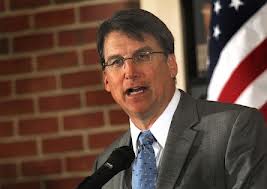Today Governor McCrory aligned with party Republicans. Support for the expansion of Medicaid to about 500,000 poor people in the state of North Carolina, with many being the elderly and disabled was denied. Leadership felt the expansion would be too risky, even at no cost for three years. With that position, the good this measure could do for some of the state’s most vulnerable, was denied.
Compassion for the poor is needed in this administration, as it is needed in any administration. Striking a sensitive balance between fiscal strength and caring for many of the state’s very poor and sickly residents will require more than a neurological approach to leadership, but a leveraging of humanity as a guide to casting votes.
Yes, it is understood that carrying and caring for an expanded number of a half million sick and needy citizens is a monumental responsibility to vote no on. So, how was it possible that they did? Of course, politics and tomorrow are both fickled peas in similar pods. Must we act to provide fiscal discipline? Yes. Must we move along legislation that supports principles of good stewardship in state operations? Yes. But, at the end, all of our efforts should reflect a deep care and concern for fiscal policy and human life. The silent majorities in this case are those too weak and frail to fight for themselves. It is those who have no political might, no contributor equity and no voice when the last ayes or nays is cast.
There is an old saying that a bird in the hand is not a bad position to be in. It is a pretty good idea to take advantage of an opportunity to serve and then, move it along a continuum of next steps. If the Governor and the state leadership are positioning themselves to opt out of the Affordable Care Act, well, then, prepping the drive to move forward is about ready.
In closing, what did the “no” vote really do? The problem still remains. Poverty is a problem in the state of North Carolina. Health care is the basic right of any citizen, especially in this democracy. There are poor, sick, disabled and elderly residents who are not capable of producing the economic means needed for a respectable quality of life and no matter how many bills are passed or committees are assembled; this does not change the reality. So, what do we do?
http://abclocal.go.com/wtvd/story?section=news/local&id=8989731
